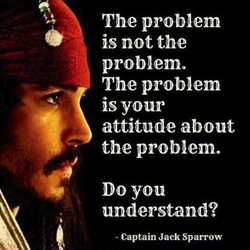 Self-discipline is the ability to get yourself to take action regardless of your emotional state. My personal philosophy of how to build self-discipline is best explained by an analogy. Self-discipline is like a muscle. The more you train it, the stronger you become. The less you train it, the weaker you become. Everyone possesses different levels of self-discipline. Everyone has some, just as it takes muscle to build muscle, it takes self-discipline to build self-discipline. The basic method to build self-discipline is to tackle challenges that you can effectively accomplish but push you near your limit. This doesn’t mean trying something and failing at it every day, nor does it mean staying within your comfort zone. You will gain no strength trying to lift a weight that you cannot budge, nor will you gain strength lifting weights that are too light for you. You must start with weights/challenges that are within your current ability to lift but which are near your limit.  The first step in developing discipline is finding the fears that are preventing you from not taking action. So think about something personal or professional that is important to you that you have been putting off. What are the fears and limiting beliefs that make you resistant to doing this thing? If you’re lucky, you’ve learned to do this type of self-reflection as a child. Most parents work diligently to instill self-discipline in their children. One of the primary tasks of raising children is to help them develop self-discipline. Parents often find themselves correcting their children for interrupting, being wild, not following instructions, or for not controlling their hands or mouths. These all require self-discipline or self-control because young children are by nature impulsive. A person armed with self-discipline has a tremendous asset for addressing life’s challenges. So many relational and personal problems can be avoided or controlled when one has self-control.  Concentrating, inhibiting initial impulses, and delaying gratification are important forms of self-discipline. Each distinctly involves overriding different, unhelpful tendencies and plays a pivotal role in the course of a young person’s life. Concentrating requires overcoming the tendency for the mind to wander, and sustaining intentional focus despite distractions, boredom, frustration, or fatigue. As it involves directing one’s thoughts to the topic at hand, concentration is the form of self-discipline that most clearly draws on our capacity to deliberately direct attention. The ability to concentrate is important because it enables an individual to mentally ‘buckle down’ and stay on a task long enough to make progress and be effective. Inhibiting initial impulses requires overcoming the tendency to jump to conclusions or to act on impulse. It involves overriding one’s initial response to a problem or situation, in order to consider alternatives or consider the potential costs and benefits of a course of action Delaying gratification requires overcoming impatience and the tendency to favor short-term rewards over long-term goals. It involves internalized standards and morals. It assists the individual in persisting at goal-oriented behaviors for the good of their future.  Think about how self-disciplined you are in your life and ask yourself who helped you develop that trait, or who stifled it from developing. Self-discipline is the art of doing something that you don't want to do but know that you need to do for a long-term benefit. Modeling disciplined behavior, teaching by precept and creating consequences all have a part in helping your child become more self-disciplined. Lenny Kravitz's grandfather, a man who learned the value of hard work and discipline at a young age, helped raise a rock star with those same values. Watch as Lenny recounts one of his grandfather's character-building exercises and how it helped him achieve success as a musician, producer and actor.
0 Comments
Your comment will be posted after it is approved.
Leave a Reply. |
This blog covers novel completion, fellow authors and pop culture
Archives
May 2022
|

 RSS Feed
RSS Feed


